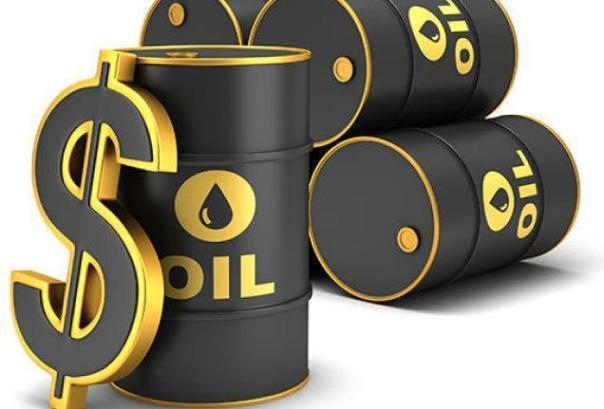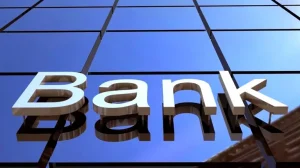
The Petroleum and Natural Gas Senior Staff Association of Nigeria has warned that increasing the cost of petrol without concluding the ongoing negotiations on the matter would create serious problems.
It disclosed this on Thursday in reaction to the statement made on Tuesday by the Group Managing Director of the Nigerian National Petroleum Company Limited, when he announced that petrol would sell for between N320 and N340 per litre from February 2022.
General Secretary, PENGASSAN, Lumumba Okugbawa, said the country’s refineries must work before fuel subsidy would be stopped.
He stressed that this was what PENGASSAN, through its affiliate, the Trade Union Congress, had been telling the government, adding that any attempt to remove subsidy without concluding these issues being negotiated would cause serious issues.
This came as the NNPC distanced itself from petroleum products’ pricing functions when contacted to speak on whether it had concluded negotiations with labour unions on matters of subsidy removal.
Asked whether the negotiations between the government and labour as regards subsidy removal had been concluded, Okugbawa replied in the negative.
He said, “They are talking with NLC (Nigeria Labour Congress) and TUC and we are affiliated to the unions. NUPENG is affiliated to NLC, while we are affiliated to TUC. We are all collaborating in the discussions to get a better understanding on this.
“So, no; negotiations have not ended. However, it is not a decision yet, rather they (government) are just planning. But definitely it is going to create serious issues if they do it.”
He said the move to hike petrol price to N340/litre was not welcome by oil workers and would be resisted if the government tries to implement it.
“Our position is simple, that it is not a welcome development. Is that the New Year gift they want to give to Nigerians? It will be resisted,” he stated.
On claims that the payment of subsidy had been burdensome on government, Okugbawa said this was why PENGASSAN had been calling on government to fix refineries.
He said, “We’ve said that an import-driven form of deregulation will create this sort of problem that they are talking about, and that what is necessary is local production-driven deregulation.
“We should not be listening to international monetary bodies and others before we take our own decisions. Let’s do what we should do by creating more functional refineries.
“They’ve started a good job by carrying out rehabilitation at the Port Harcourt refinery although the job has not started as such. But we know that we will get there, and then build more modular refineries.”
He added, “They should encourage more private people to be involved, because you will have to produce locally to handle this issue. Once you are not producing locally, the price will affect you as it is affecting us now.”
He further noted that when refineries work optimally, the cost of refined petroleum products in Nigeria would reduce and by then the debate for subsidy might cease.
Okugbawa said, “Prices will reduce very well because there are so many things tied to the importation of fuel such as landing cost, marketers margin and many other margins that are computed.
“But all those will be removed when we produce locally. Since a ship is not going to stay at the ports for days discharging products, all those associated landing costs will be reduced.
“So instead of paying all those, demurrage and others, you will cut them off and these are the factors. We know that when the international price of oil goes up, petrol price will also go up.
“But if we are refining locally and the price of crude oil goes up in the international market, it is to our own advantage. Nothing is too much to invest to ensure that we refine locally. We have been saying this since.”
When contacted on whether negotiations with labour had been concluded, the spokesperson of NNPC, Garba-Deen Muhammad, stated that the issue of petrol pricing was not the function of the oil firm.
He said, “I wouldn’t know because it is a policy meeting. As you know, since the coming of the PIA (Petroleum Industry Act), the NNPC is an operator and marketer.
“So I really don’t know the status of the discussion. In any case, price issues are policy matters. NNPC does not fix price, it has no mandate. It operates in the sector as a business concern governed by CAMA Laws.”
Meanwhile, the Senior Staff Association of Statutory Corporations and Government-Owned Companies has vowed to resist the removal of subsidy unless the government increases the national minimum wage to reflect the projected hike in fuel pump price estimated to sell at N342 per litre in 2022.
The union stated that it would not have issues with the planned removal of subsidy as advised by the International Monetary Fund, if the Federal Government increased the minimum wage by at least 300 per cent.
The Secretary-General, Senior Staff Association of Statutory Corporations and Government-Owned Companies, Dr Ayo Olorunfemi, said this in a telephone interview with The PUNCH on Wednesday.
Olorunfemi argued that the planned fuel price hike would drive up the cost of goods and services by over 300 per cent, insisting that the government should be ready to increase the minimum wage to N200,000 from the current N30,000.
The SSASCGC scribe said, “If they (FG) must do this (increase the pump price), minimum wage must be increased by 300 per cent. That’s the least we can accept. If we do a thorough calculation, the minimum wage, based on the 2015 salary structure, should be N30,000.
“The increases that have occurred from 2015 to date and that’s the percentage increase that we should be talking about.
“If the prices of goods and services have increased by 400 per cent, then we should be talking about N120,000 minimum wage. And by the time they remove this subsidy, it would further increase by another 300 per cent. So, we should be talking about N200,000 minimum wage.
“If they are ready to do that, they can go ahead with the IMF directive but if they can’t do that, let’s remain the way we are.”
Olorunfemi, who is the Chairman, Trade Union Congress Political Commission, flayed the government for its lack of innovative thinking, adding that the FG’s cluelessness has wrecked the economy and push up inflation to record levels.




贴纸和 GIF 是 纸飞机 聊天中的乐趣,丰富了用户的表达方式。